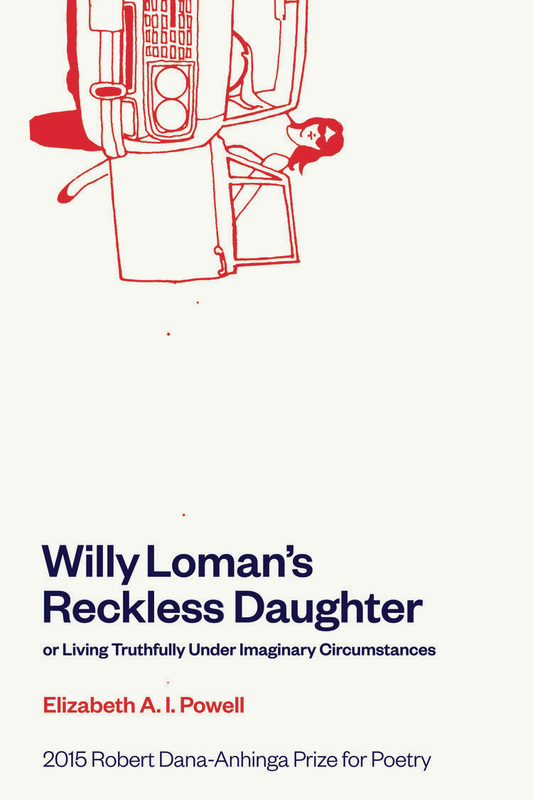- Home
- About
- Submit
- Features
- Interviews
- Book Reviews
- Previous Issues
- Blog
- Contact
-
Issue #25 Spring 2023
- Issue #25 Art Spring 2023 >
-
Issue #25 Poetry Spring 2023
>
- Emma Bolden Spring 2023
- Ronda Piszk Broatch Spring 2023
- M. Cynthia Cheung Spring 2023
- Flower Conroy Spring 2023
- Jill Crammond Spring 2023
- Sandra Crouch Spring 2023
- Satya Dash Spring 2023
- Rita Feinstein Spring 2023
- Dan Fliegel Spring 2023
- Lisa Higgs Spring 2023
- Dennis Hinrichsen Spring 2023
- Mara Jebsen Spring 2023
- Abriana Jetté Spring 2023
- Letitia Jiju Spring 2023
- E.W.I. Johnson Spring 2023
- Ashley Kunsa Spring 2023
- Susanna Lang Spring 2023
- James Fujinami Moore Spring 2023
- Matthew Murrey Spring 2023
- Pablo Otavalo Spring 2023
- Heather Qin Spring 2023
- Wesley Sexton Spring 2023
- Ashish Singh Spring 2023
- Sara Sowers-Wills Spring 2023
- Sydney Vogl Spring 2023
- Elinor Ann Walker Spring 2023
- Andrew Wells Spring 2023
- Erin Wilson Spring 2023
- Marina Hope Wilson Spring 2023
- David Wojciechowski Spring 2023
- Jules Wood Spring 2023
- Ellen Zhang Spring 2023
- BJ Zhou Spring 2023
- Jane Zwart Spring 2023
- Issue #25 Fiction Spring 2023 >
- Issue #25 Nonfiction Spring 2023 >
-
Issue #26 Fall 2023
- Issue #26 Art Fall 2023 >
-
Issue #26 Poetry Fall 2023
>
- Fasasi Abdulrosheed Oladipupo Fall 2023
- Christopher Ankney Fall 2023
- Magdalena Arias Vásquez Fall 2023
- John Peter Beck Fall 2023
- Mihir Bellamkonda Fall 2023
- Benjamin Bellas Fall 2023
- Michael Carson Fall 2023
- Kevin Clark Fall 2023
- Aaron Coleman Fall 2023
- Mark DeCarteret Fall 2023
- Denise Duhamel Fall 2023
- Brandel France de Bravo Fall 2023
- Tina Gross Fall 2023
- Amorak Huey Fall 2023
- James Kimbrell Fall 2023
- Casey Knott Fall 2023
- Stephen Lackaye Fall 2023
- Cynthia Manick Fall 2023
- Savannah McClendon Fall 2023
- John Muellner Fall 2023
- Mollie O’Leary Fall 2023
- Joel Peckham Fall 2023
- Natalia Prusinska Fall 2023
- henry 7. reneau, jr. Fall 2023
- Esther Sadoff Fall 2023
- Hilary Sallick Fall 2023
- Kelly R. Samuels Fall 2023
- Issue #26 Fiction Fall 2023 >
-
Issue #27 Spring 2024
- Issue #27 Art Spring 2024 >
-
Issue #27 Poetry Spring 2024
>
- Terry Belew Spring 2024
- Dustin Brookshire & Diamond Forde Spring 2024 Spring 2024
- Dustin Brookshire & Caridad Moro-Gronlier Spring 2024 Spring 2024
- Charlie Coleman Spring 2024
- Isabelle Doyle Spring 2024
- Reyzl Grace Spring 2024
- Kelly Gray Spring 2024
- Meredith Herndon Spring 2024
- Mina Khan Spring 2024
- Anoushka Kumar Spring 2024
- Cate Latimer Spring 2024
- BEE LB Spring 2024
- Grace Marie Liu Spring 2024
- Sarah Mills Spring 2024
- Faisal Mohyuddin 2024
- Marcus Myers Spring 2024
- Mike Puican Spring 2024
- Sarah Sorensen Spring 2024
- Lynne Thompson Spring 2024
- Natalie Tombasco Spring 2024
- Alexandra van de Kamp Spring 2024
- Donna Vorreyer Spring 2024
- Fiction #27 Spring 2024 >
- Nonfiction #27 Spring 2024 >
Book Review: Willy Loman's Reckless Daughter by Elizabeth Powell
Elizabeth A. I. Powell is the author of “The Republic of Self” a New Issue First Book Prize winner, selected by C.K. Williams. Her second book Willy Loman’s Reckless Daughter: Living Truthfully Under Imaginary Circumstances won the Robert Dana Prize in poetry, chosen by Maureen Seaton, and will be published by Anhinga Press in 2016. In 2013, she won a Pushcart Prize. Powell has also received a Vermont Council on the Arts grants and a Yaddo fellowship. Her work has appeared in Alaska Quarterly Review, Barrow Street, Black Warrior Review, Ecotone, Harvard Review, Handsome, Hobart, Indiana Review, Missouri Review, Mississippi Review, Slope, Sugarhouse Review, Ploughshares, Post Road, and elsewhere. She is Editor of Green Mountains Review, and Associate Professor of Writing and Literature at Johnson State College. She also serves on the faculty of the low-residency MFA in Creative Writing at the University of Nebraska-Omaha and the Vermont College of Fine Arts MFA in Writing and Publishing. Born in New York City, she has lived in Vermont since 1989.
. |
Review |
A Review of Elizabeth Powell's Willy Loman's Reckless Daughter by Steven Seum
From the onset, Elizabeth A.I. Powell’s Willy Loman’s Reckless Daughter: or Living Truthfully Under Imaginary Circumstances questions the reality of the words on the page and the understanding of the world in which we exist. While each poem enhances the narrative of the next, Powell creates a work of literature than can be picked up at your leisure or read in an entire sitting. At times there is both freedom and structure to the words on the page, while at other times the poems are crafted with narrative reminiscent of a short story. Powell uses Death of a Salesman as a model for framing her poetry in life, death, and actuality. Her statement of the unspoken parallel of the absent versus the known is representative in her questions of truth and the implications of the obscure. Carrying across the idea of a dual existence, there is always the question of who? She writes: So, I say it. My double, my sister: we are engaging in an energy The stories make the reader marvel whether she or the other may be the motivation for the manifestation and creation of literature, drama, and life. Always questioning, Powell tackles death’s totality and truth of the effects of a non-existence as she writes, “The object of our attention is this dream that turns out to be real./ The object of our attention is at once the object of our attention and also ourselves.” Her prose continually treats the external and the internal, challenging us to ignore the truth of their present duality. She continues later writing, “[s]ometimes you try to deny my existence, but today please come/flying so we may live truthfully under imaginary circumstances.” She never allows us to forget the designs and intentions of the interwoven thematic issues of the absent and the known when she asks the other to come flying with her into imaginary circumstances.
There is a culmination of imaginary circumstance as Powell ends her book with its namesake, “Willy Loman’s Reckless Daughter,” as structure and rhyme are birthed from the chaos and questioning that have lead up to this final act. She tackles this idea from the viewpoint of a child of passion, this unknown bastard, she writes, “O, Willy Loman, I’m your reckless daughter, your memento mori./ I’ll never be a character in your authorized story,/the one that brought you fame.” The continued treatment of truth versus authenticity is maintained as we see this unfamiliar personality treat Willy Loman as a construction of veracity. He is the known and the glorified while she is the unknown and the repressed. This idea of questioning true existence begins with the first poem of the book and culminates into the stunning final magnum opus. As the book ends, there is no doubt we are sold on the idea of this creation, this unwritten circumstance of Willy Loman’s implied indiscretions of infidelity. It is the birth of the unreal, a question of authenticity, and a depth of meaning to a story we may have not known. The reader is left mourning for the loss of someone whose entire existence is a question of authenticity and repression. Powell’s poems whisper quietly in our ears, challenging us to deny this unwritten reality. |

Steven Seum is a recent transfer student to Lewis University. He has recently returned to college after a fifteen year hiatus to pursue a degree in English Writing. Currently, he is an assistant editor in Fiction/Nonfiction as well as assistant Book Reviewer and Marketing consultant for the Jet Fuel Review. In his free time he enjoys relaxing evenings on the couch watching movies with his wife and volunteering for the Watch D.O.G.S (Dads of Great Students) program at his (2) daughter’s school. His interests include an immersion in a wide variety of movie genres as well as a healthy interest in well-written science fiction and fantasy literature.
- Home
- About
- Submit
- Features
- Interviews
- Book Reviews
- Previous Issues
- Blog
- Contact
-
Issue #25 Spring 2023
- Issue #25 Art Spring 2023 >
-
Issue #25 Poetry Spring 2023
>
- Emma Bolden Spring 2023
- Ronda Piszk Broatch Spring 2023
- M. Cynthia Cheung Spring 2023
- Flower Conroy Spring 2023
- Jill Crammond Spring 2023
- Sandra Crouch Spring 2023
- Satya Dash Spring 2023
- Rita Feinstein Spring 2023
- Dan Fliegel Spring 2023
- Lisa Higgs Spring 2023
- Dennis Hinrichsen Spring 2023
- Mara Jebsen Spring 2023
- Abriana Jetté Spring 2023
- Letitia Jiju Spring 2023
- E.W.I. Johnson Spring 2023
- Ashley Kunsa Spring 2023
- Susanna Lang Spring 2023
- James Fujinami Moore Spring 2023
- Matthew Murrey Spring 2023
- Pablo Otavalo Spring 2023
- Heather Qin Spring 2023
- Wesley Sexton Spring 2023
- Ashish Singh Spring 2023
- Sara Sowers-Wills Spring 2023
- Sydney Vogl Spring 2023
- Elinor Ann Walker Spring 2023
- Andrew Wells Spring 2023
- Erin Wilson Spring 2023
- Marina Hope Wilson Spring 2023
- David Wojciechowski Spring 2023
- Jules Wood Spring 2023
- Ellen Zhang Spring 2023
- BJ Zhou Spring 2023
- Jane Zwart Spring 2023
- Issue #25 Fiction Spring 2023 >
- Issue #25 Nonfiction Spring 2023 >
-
Issue #26 Fall 2023
- Issue #26 Art Fall 2023 >
-
Issue #26 Poetry Fall 2023
>
- Fasasi Abdulrosheed Oladipupo Fall 2023
- Christopher Ankney Fall 2023
- Magdalena Arias Vásquez Fall 2023
- John Peter Beck Fall 2023
- Mihir Bellamkonda Fall 2023
- Benjamin Bellas Fall 2023
- Michael Carson Fall 2023
- Kevin Clark Fall 2023
- Aaron Coleman Fall 2023
- Mark DeCarteret Fall 2023
- Denise Duhamel Fall 2023
- Brandel France de Bravo Fall 2023
- Tina Gross Fall 2023
- Amorak Huey Fall 2023
- James Kimbrell Fall 2023
- Casey Knott Fall 2023
- Stephen Lackaye Fall 2023
- Cynthia Manick Fall 2023
- Savannah McClendon Fall 2023
- John Muellner Fall 2023
- Mollie O’Leary Fall 2023
- Joel Peckham Fall 2023
- Natalia Prusinska Fall 2023
- henry 7. reneau, jr. Fall 2023
- Esther Sadoff Fall 2023
- Hilary Sallick Fall 2023
- Kelly R. Samuels Fall 2023
- Issue #26 Fiction Fall 2023 >
-
Issue #27 Spring 2024
- Issue #27 Art Spring 2024 >
-
Issue #27 Poetry Spring 2024
>
- Terry Belew Spring 2024
- Dustin Brookshire & Diamond Forde Spring 2024 Spring 2024
- Dustin Brookshire & Caridad Moro-Gronlier Spring 2024 Spring 2024
- Charlie Coleman Spring 2024
- Isabelle Doyle Spring 2024
- Reyzl Grace Spring 2024
- Kelly Gray Spring 2024
- Meredith Herndon Spring 2024
- Mina Khan Spring 2024
- Anoushka Kumar Spring 2024
- Cate Latimer Spring 2024
- BEE LB Spring 2024
- Grace Marie Liu Spring 2024
- Sarah Mills Spring 2024
- Faisal Mohyuddin 2024
- Marcus Myers Spring 2024
- Mike Puican Spring 2024
- Sarah Sorensen Spring 2024
- Lynne Thompson Spring 2024
- Natalie Tombasco Spring 2024
- Alexandra van de Kamp Spring 2024
- Donna Vorreyer Spring 2024
- Fiction #27 Spring 2024 >
- Nonfiction #27 Spring 2024 >

